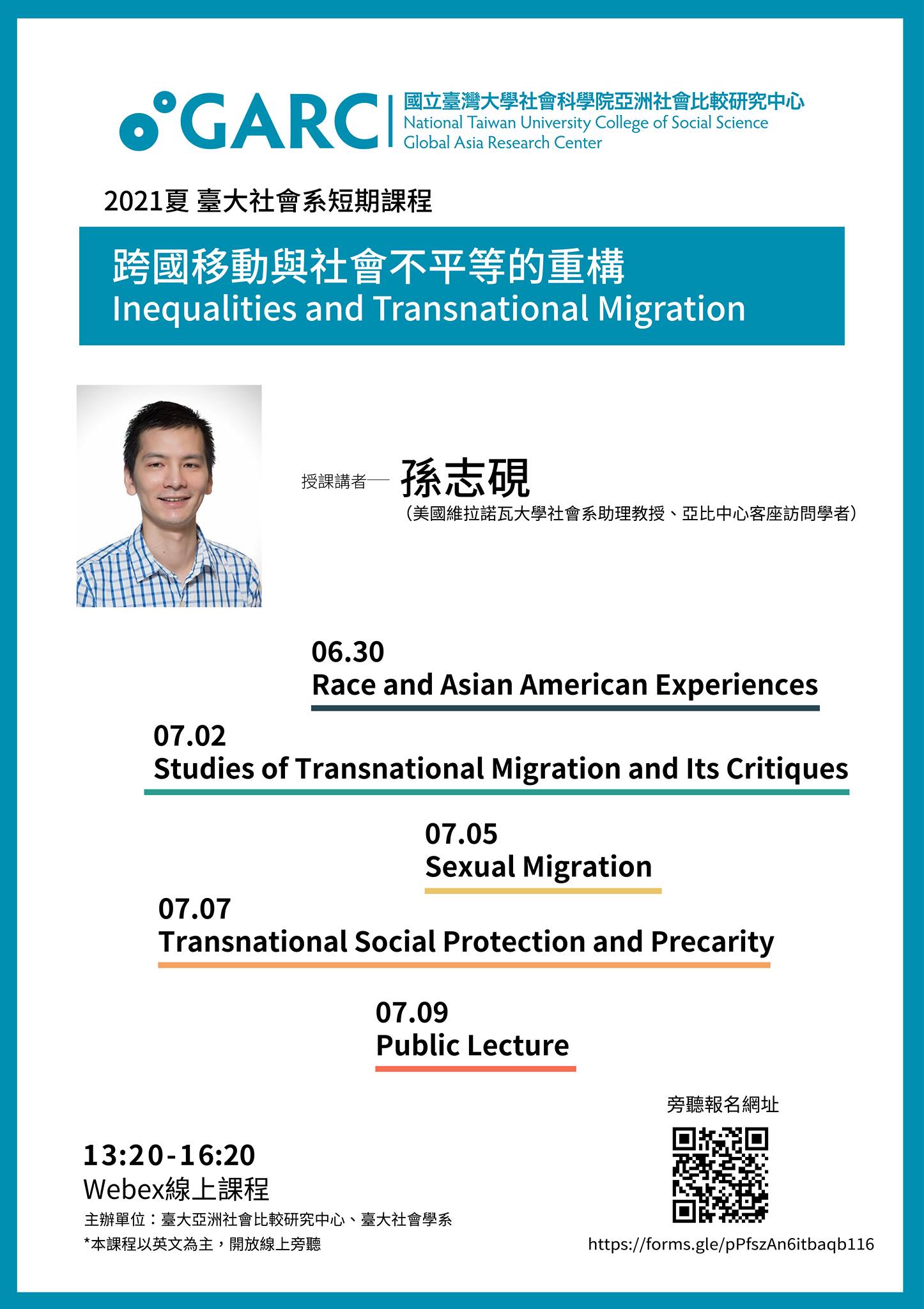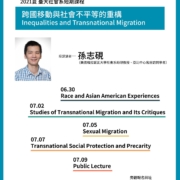跨國移動與社會不平等的重構
Issues regarding migration are central to today’s debates and discussions about inequalities, stratification, and diversity. The movement of people across borders is certainly nothing new, but international migration has arguably become more prominent and significant in the contemporary era of globalization. In the social sciences, the topic of international migration is increasingly recognized as an important subfield of study. This course will provide students with an overview of the major concepts and perspectives that mark the study of transnational migration within sociology and other social sciences, ranging from theories of immigrant incorporation to ongoing debates about citizenship.
To do so, we will explore systems of inequality in the United States through the lens of international migration. This course will examine the ways in which race/ethnicity, class, gender, age, and citizenship status shape the experience of migrants and non-migrants in the process of dislocation and resettlement. Students will learn how having a “sociological imagination” helps us to understand links between material inequality, cultural representations, and human agency. Most of the readings in this course address migration and immigration to and from the US, but we will also address other regions of the globe as we learn about transnational migration and ties.
This course is organized around various central debates within the fields of transnational migration as well as Asian/Asian American Studies. For every topic, we will start with the classic works foundational to each subfield and then turn to contemporary iterations. We will also collaboratively envision the social changes and reforms necessary to eradicate various types of social inequalities. This will help us develop genuine respect for and sophisticated understanding of why diversity is important for our societies.




